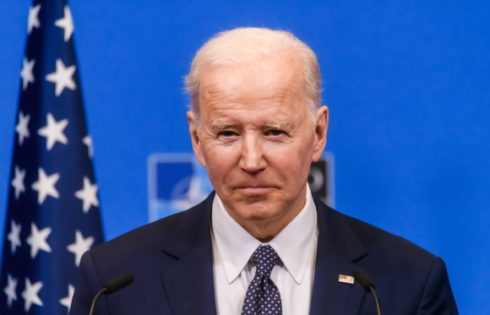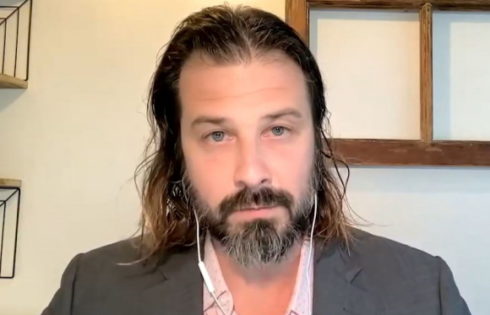
Belief is more than an expression of identity, and diversity does not cure all ills
Religion should not be the domain of diversity, equity and inclusion departments, because religion is not just an identity like race or gender.
Religion is not just one aspect of our personhood among many others; it’s foundational to how we see the world and act in it. That’s because it makes claims about reality that can be questioned.
Eboo Patel, the founder and president of Interfaith America, a nonprofit whose mission is to “inspire, equip, and connect leaders and institutions to unlock the potential of America’s religious diversity,” according to its website.
I disagree with Patel’s recent essay in The Chronicle of Higher Education in which he argued that faith issues at universities could be addressed by DEI departments trained as experts in the religion. He cited the firing of an instructor at Hamline University for showing an image of the Prophet Muhammad as an instance where the student, Aram Wedatalla (pictured), could have learned a diversity lesson:
How wonderful, then, that there is a place on campus called the Office of Inclusive Excellence. It could be a space where students who need to have a reckoning between the magnificent wideness of the world and the (relative) narrowness of any human worldview can go to process their journey. …
Perhaps this particular Muslim student was especially fortunate. What if the DEI officer she spoke with had spent time traveling through the Muslim-majority world — had perhaps seen firsthand a range of Muslim practices and beliefs? … Such an official could have gently explained that while it may be easier to stay home, you voyage to college to encounter diversity — and diversity is not just the differences you like.
It’s a pleasant notion: if only the DEI staff understood religion better, they could teach undergraduates to accept differences more! A DEI official could have given the Muslim student at Hamline a gentle lesson in religious toleration, and maybe she wouldn’t have taken her complaints so far.
However, this reveals a misunderstanding of many people’s religious beliefs. That is not because Muslims are unreasonable. It’s because an identity-driven understanding of the world is not suited to fully comprehending religion, just like physics can’t fully comprehend music or literature.
The diversity rubrics, commonly developed to address differences in race, ethnicity, and sexuality, might understand religion in one of two ways. Either religion puts people on an unequal footing, as in the contemporary understanding of race influenced by Ibram Kendi and others, or religion is about “one’s innermost concept of self,” like the definition of gender identity advanced by the Human Rights Campaign.
Patel is right, and more broad-minded than much DEI thinking, in stating that religion does not “fall neatly into the categories of ‘privilege’ and ‘oppression’ that are so often used to understand race, gender, and sexuality.” Even more, he points out that religious difference is a crucial, oft-neglected aspect of human variation.
Nonetheless, interpreting religion only in terms of “identity” and “diversity” is incomplete and false.
Religions make historical and philosophical claims about natural and supernatural reality. Muslims believe there is no God but Allah, and Muhammed is his prophet. Buddhists believe life is suffering, and we escape from suffering by eliminating desire. Christians believe Jesus Christ was the Son of God, fully human and fully divine. When someone follows one of the major world religions, they adopts their claims, or at least grapples with them.
These are not statements of preference or subjective value, meaning that people can dispute and question them. They can even be wrong about them.
Religions are commitments to a reality beyond identity
Suppose religion was simply an identity like race. In that case, schools could resolve religious differences by promoting equality and affirming a wide range of viewpoints, as in Patel’s vision and the ideal of inclusive excellence. Yet even in places where authorities spend large sums and great effort to do this, religious conflict persists.
The Hamline University case forced the university to choose: deference to conservative Islam or freedom to teach art history. The Muslim writers who defended the professor were correct that the student does not speak for all members of her faith. But she does speak out of a Muslim belief, not personal values or preferences.
“Most Muslims around the world oppose the public display of images of the Prophet Muhammad,” Jaylani Hussein, executive director of the Council on American Islamic Relations, said during a news conference reported by Minnesota Public Radio.
The public university solution is compromise and neutrality, joined to basic academic norms. Secular universities should tolerate all religions without endorsing any, including the religion of social justice. People should be free to live and proclaim their creeds on the university green, just as everyone should be able to do in the public square. Student organizations should be allowed to govern themselves according to their religious beliefs.
However, religion should not force an art history professor to hide history any more than it should force a biology professor to conceal the evidence for evolution.
What is more, instead of giving DEI departments domain, trained scholars in history, theology and philosophy should teach major world religions thoroughly and respectfully. World religions taught in this way could be a new core curriculum. Not only would that promote understanding, it would force young people to confront their freedom to find and choose the truth or reaffirm a commitment they learned as a child but have not yet claimed as their own.
That step may be harder than constructing or affirming an identity. But it’s one that even secular universities should prepare young adults to make.
MORE: Obsessed with diversity, colleges are blind to other kinds of difference
IMAGE:Kerem Yücel | MPR News
Like The College Fix on Facebook / Follow us on Twitter






Please join the conversation about our stories on Facebook, Twitter, Instagram, Reddit, MeWe, Rumble, Gab, Minds and Gettr.